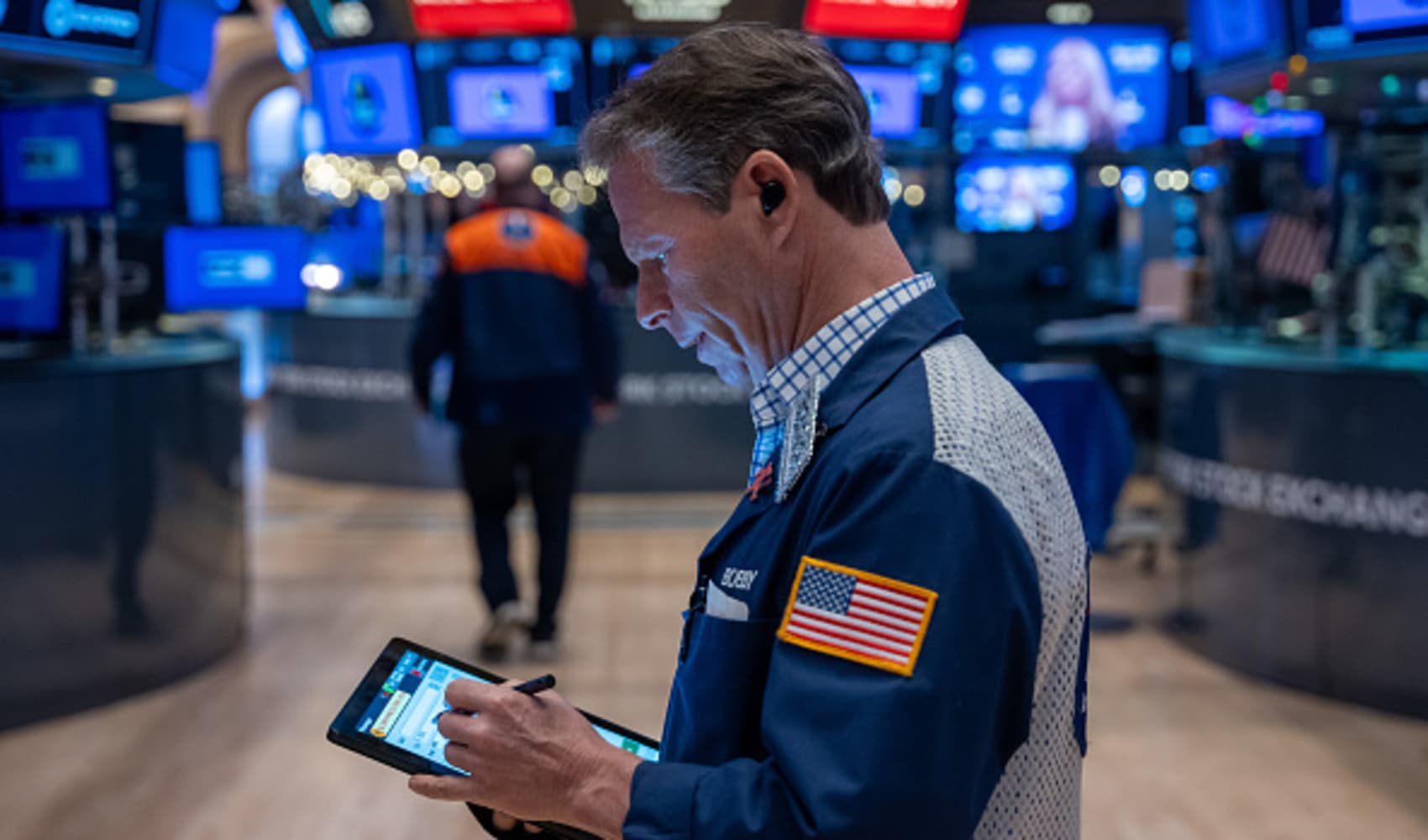
- Clare Pleydell-Bouverie, co-lead fund manager at Liontrust Asset Management, is eyeing up firms hovering near — but not currently a part of — the seven biggest tech firms.
- Pleydell-Bouverie warned keen AI investors to see that "you've got to build out this new compute infrastructure before you can monetize it."
- This includes silicon chips, semiconductor equipment, the likes of Applied Materials, and firms responsible for laying underground cables and networks, she said.
The AI revolution is "the biggest platform shift since electricity" and, as such, will bring investment opportunities in smaller tech firms that are climbing ever nearer to the Big Tech behemoths, according to one U.K.-based fund manager.
"We're of the firm belief that the winners of this new technology cycle, that really started 18 months, two years ago with the ChatGPT moment [and the] AI revolution, these are not going to be the same winners as the last technology cycle," Clare Pleydell-Bouverie, co-lead fund manager at Liontrust Asset Management, told CNBC's Arjun Kharpal last week.
Get Tri-state area news delivered to your inbox.> Sign up for NBC New York's News Headlines newsletter.
"We're really focused on the opportunities sat below the Magnificent Seven," Pleydell-Bouverie said, referencing a group of Big Tech stocks comprising of Alphabet, Amazon, Apple, Meta, Microsoft, Nvidia and Tesla.
Many of those tech firms she says are ripe for investment work on AI applications, which the fund manager describes as an emerging club of high-value firms, and one of a number of different layers growing within the wider AI industry.
"This year we've been really focused on the AI infrastructure layer of this new technology stack," she said.
Money Report
Pleydell-Bouverie warned keen AI investors to see that "you've got to build out this new compute infrastructure before you can monetize it." This includes silicon chips, semiconductor equipment, the likes of Applied Materials, and firms responsible for laying underground cables and networks, she said.
"So, the Broadcom's, the Amphenol's, the Arista's of this world, these are all really crucial components to scale this AI infrastructure. And on top of that, you've got the model providers. For the most part, we view these players as quite commoditized ... It's a complete arms race to build these large foundation models," she said. Large foundation models refer to machine-learning models that are trained on large amounts of data.
Below the AI application making "stack" are engineering firms "who bring AI to companies and customers," said Pleydell-Bouverie, adding: "The value at the moment resides still in that AI infrastructure layer, but we see that moving up the stack into next year."
Nvidia 'primary beneficiary' of AI boom
Pleydell-Bouverie believes Nvidia will be the key player for the AI revolution in 2025, striking comparisons with Apple's surge as the dominant player during the smartphone transition.
Understanding Nvidia's role in 2025, however, requires investors to view the Magnificent Seven firm in a different light.
"The key misunderstanding about Nvidia is that it's a chip provider. Looking at the company through this framework … looking at this company through the framework of a backward looking hyperscaler capex [capital expenditure] is fundamentally the wrong way to be looking at this company," said Pleydell-Bouverie.
Apple co-founder Steve Jobs is credited with integrating a failing operating system with sleek hardware in the mid-1990s, laying down the foundations for it to eventually take advantage of the smartphone boom that would emerge at the turn of the millennium.
Pleydell-Bouverie sees Nvidia accelerating similarly to Apple.
"Nvidia is actually positioning itself to be the operating system for this new AI-infused software that we're going to really start to see come to market from next year," she added.
Nvidia has been the primary beneficiary of the ongoing artificial intelligence boom, with its next-generation AI chip Blackwell now in focus. Shares of the company have nearly tripled so far in 2024 — up more than 180% in the year-to-date — making it one the world's most valuable companies.






